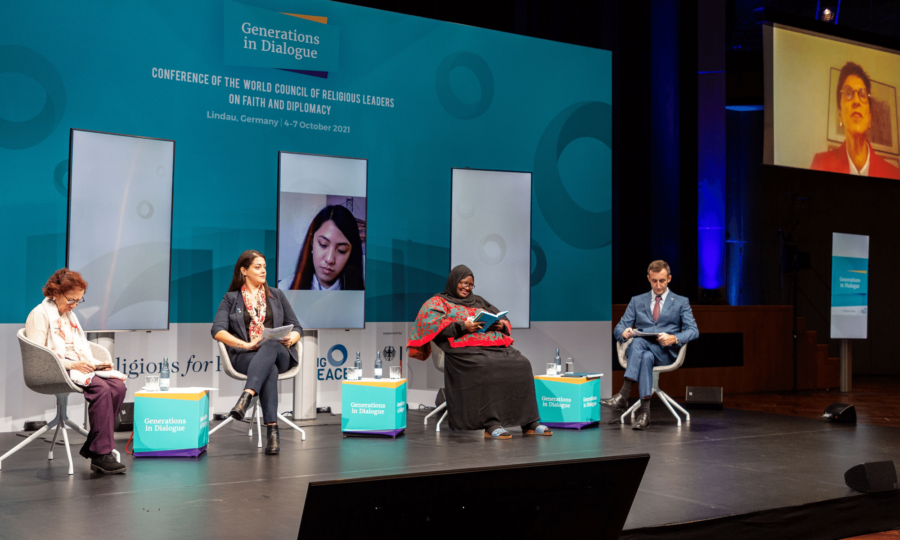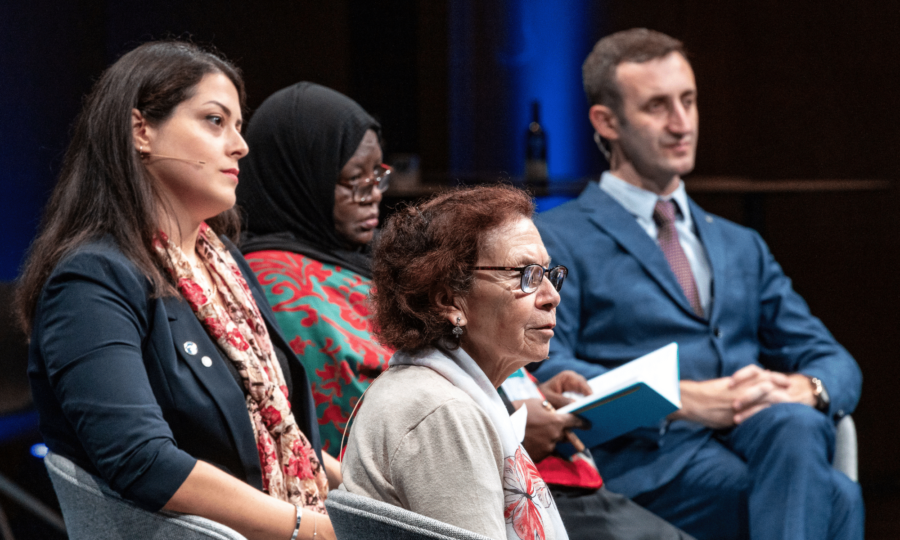Nourishing the Human in Humanitarianism
20211013Nourishing the Human in Humanitarianism provided a space in which humanitarian workers and religious leaders could discuss the importance of preserving humanity in crises. The speakers identified how religious and diplomatic practices can work to protect the dignity and other human rights of people in humanitarian situations.
Keynote speaker H.E. Ms. Ursula Müller, Former Assistant Secretary-General for Humanitarian Affairs and Deputy Emergency Relief Coordinator in the United Nations Office for the Coordination of Humanitarian affairs (OCHA) reminded us that, alongside lifesaving assistance like food and water, the human soul and spirit must also be nourished in humanitarian crises. Respecting the humanity of those in need is a critical component of providing humanitarian assistance.

Panelists Ms. Laura Vargas, Inter-Religious Council of Peru – Religions for Peace, Interfaith Rainforest Initiative, Ms. Shamsa Abubakar Fadhil, Organizational Secretary, Mombasa Women of Faith Network, Ms. Jacqueline B. Mallari, Chairperson, Religions for Peace Philippines, and Dr. Genti Kruja, Secretary General, Religions for Peace Albania, shared examples of nourishing the human in their work. Ms. Vargas emphasized the power of solidarity, sharing how they were able to serve more refugees and migrants in Peru when communities worked together. Ms. Abubakar Fadhil and Ms. Mallari highlighted the importance of religious leadership in helping people understand the risks of COVID-19 and to provide vulnerable communities with proper PPE and other resources. Dr. Kruja discussed how important it is to have open interfaith dialogues to establish stronger communities.

You can watch the full session, complete with many examples of how religious communities are protecting human dignity during the COVID-19 pandemic, here.